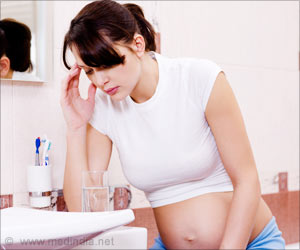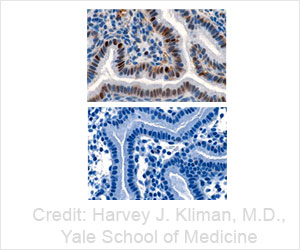Role of uterine natural killer (NK) cells in recurrent miscarriages identified in a recent study.
Highlights:
- The role of natural killer cells in pregnancy and recurrent miscarriages has been widely studied with often conflicting results
- Current study identifies possible link between recurrent miscarriages and natural killer cells in the uterus lining (uNK).
Role For Natural Killer Cells In Pregnancy/Miscarriage – Decoding the Puzzle
It has been known for long that the lining of the uterus contains dynamically active natural killer cells but until now their function remained a mystery. Natural killer cells in the uterine lining may play a crucial role in each menstrual cycle to prepare it to receive the implanted embryo in case of possible pregnancy. A defect or imbalance of this function might result in recurrent miscarriages, according to a recent study conducted at the University of Warwick and University Hospitals Coventry and Warwickshire (UHCW) NHS Trust.Clearing Senescent Decidual Cells In the Womb – Novel Role of NK Cells Identified
Current study titled “Clearance of senescent decidual cells by uterine natural killer cells in cycling human endometrium” appears in eLife discovered two major functions performed by the natural killer cells in the lining of the uterus.- In a major breakthrough, the study team discovered that the natural killer cells renew and remodel the uterine lining during each menstrual cycle to make it ready to receive the fertilized embryo.
- This remodeling is achieved by clearing the senescent and stressed decidual cells in the uterine lining (endometrium) to create space for the embryo to be implanted.
Lead author Professor Jan Brosens who is based at the Division of Biomedical Sciences Warwick Medical School said: "A good analogy is Swiss cheese - without holes, the embryo has nowhere to go which will cause implantation failure; but if the holes are too large, the tissue will physically collapse and lead to miscarriage."
This imbalance, can either be short-lived or continue over several successive cycles, explaining the reason for high degree of early pregnancy loss despite the high overall live birth rate that is characteristic of the human race.
Analyzing Endometrial Biopsies To Study The Natural Killer Cell Dynamics
Overall, 2111 endometrial biopsies were studied that were donated by women who attended the Implantation Research Clinic at UHCW NHS Trust. The team looked at the senescent lining cells of the womb and the natural killer cells in the uterine lining.- The senescent cells of the lining of the uterus produce inflammation, which the NK cells target and clear
- Though this function is performed throughout the cycle, it becomes particularly evident as the cycle progresses, and after the ovulation in preparation of possible pregnancy
Prof. Brosens added: "We hope in the future this new information will be used to screen women at risk of reproductive failure. Furthermore, our findings suggest new treatment options for women suffering recurrent miscarriages or recurrent IVF failure."
Natural Killer Cells – An Overview
Natural killer cells are a special type of lymphocytes (a type of white blood cell) i.e. large granular lymphocytes and are a crucial component of the innate immune system. They play a major ‘first line of defence’ role in protecting the body against viral and bacterial infections and against growth of cancer cells.These cells have been so named as they have the ability to “naturally kill” or destroy invading cells (microbes) or tumor cells without the need for any activation or priming. This is an important property as other immune cells can only recognize invading cells that have certain markers /antigens (eg major histocompatibility or MHC1 antigens) on their surface.
Prior Research on NK Cells In The Womb – Conflicting Results
In order to elucidate the possible role of the uterine NK (uNK) cells several studies have been conducted, many of them based on the hypothesis that NK cells might play a role in recurrent miscarriages or pregnancy failure in women- A study in 1999 suggested that uterine NK cells could cause recurrent miscarriages due to the finding of increased uNK cells in the endometrial lining. However there was not enough evidence to explain their findings
- A more recent study in 2007 again found increased numbers of uNK cells, again suggesting their possible role in recurrent miscarriages but the study failed to assess subsequent pregnancy outcome
- On the other hand, several reviews and meta analyses have not found any significant difference in uNK cell numbers between women with recurrent miscarriages and normal controls. However blood levels of NK cells was significantly higher
- Still other studies have concluded that levels of NK cells in peripheral blood (pNK) do not correlate or predict the numbers and/or function of uNK cells and measuring pNK levels might thus not be useful in predicting miscarriage or infertility
References:
- Natural Killer Cells And Infertility - (https://www.fxmedicine.com.au/blog-post/natural-killer-cells-and-infertility)
- Natural Killer Cells in Miscarriage and Infertility - (http://www.ivf1.com/natural-killer-cells-miscarriage-infertility/)
- The role of decidual cells in uterine hemostasis, menstruation, inflammation, adverse pregnancy outcomes and abnormal uterine bleeding - (https://www.ncbi.nlm.nih.gov/pubmed/26912000)
Source-Medindia













